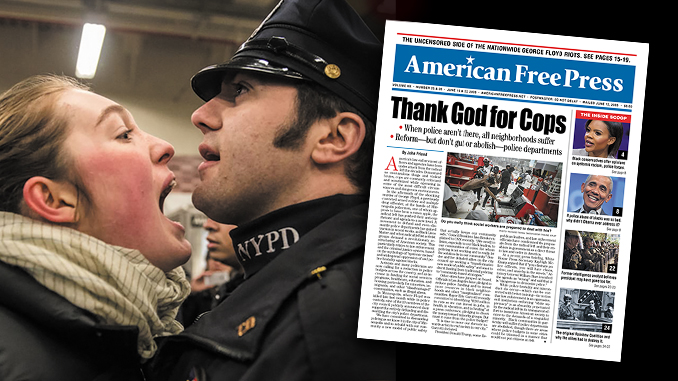
When police aren’t there, all neighborhoods suffer. Reform—but don’t gut or abolish—police departments.
By John Friend
America’s law enforcement officers and agencies have been under attack from the radical left for decades. Demonized as over-zealous thugs and violent brutes, cops are constantly criticized and scrutinized while operating in some of the most difficult circumstances and dangerous environments.
In the aftermath of the shocking murder of George Floyd, a previously convicted armed robber and multiple drug offender, at the hands of Minneapolis policemen, one of whom appears to have been a rotten apple, the radical left has pushed their anti-cop rhetoric and agenda to a new level. A movement to defund and even dismantle police departments has gained traction in recent weeks, as Black Lives Matter and other radical leftist activist groups demand a revolutionary restructuring of American society. This particularly relates to law enforcement and the criminal justice system, based on the mythology of “systemic racism” and widespread oppression of and police brutality against blacks.
Activists and many politicians are now calling for a reduction in police budgets across the country, and an increase in funding for social services programs, healthcare, education, and housing, particularly for minorities, immigrants, and other “disadvantaged” communities, such as illegal aliens.
In Minneapolis, where Floyd was killed late last month while in police custody, nine of the 13 members of the city council publicly announced their support for entirely defunding and dismantling the city’s police department.
“We have committed to dismantling policing as we know it in the city of Minneapolis and to rebuild with our community a new model of public safe ty that actually keeps our community safe,” Council President Lisa Bender explained to CNN recently. “[We need] to listen, especially to our black leaders, to our communities of color, for whom policing is not working and to really let the solutions lie in our community.” Bender and her deluded allies on the city council are seeking a “transformative new model of public safety” and want to divert funding from traditional policing to “community-based strategies.”
Other cities have jumped on board. Officials in Los Angeles have pledged to reduce police funding and to invest more resources in black neighborhoods and other “marginalized” communities. Mayor Eric Garcetti recently committed to identifying “$250 million in cuts so we can invest in jobs, in health, in education, and in healing” at a press conference, pledging to divert the money toward minority groups. But must it come from the police budget?
“It is time to move our rhetoric towards action to end racism in our city,” Garcetti declared.
President Donald Trump, some Republican leaders, and law enforcement officials have condemned the proposals from the radical left and their enablers in government as a direct threat to law and order in America.
At a recent press briefing, White House Press Secretary Kayleigh Mc- Enany argued that if “you eliminate police officers, you will have chaos, crime, and anarchy in the streets.” Attorney General William Barr described the agenda as “wrong” and said that it is “dangerous to demonize police.”
While police brutality and misconduct do occur—which can be corrected with better training—the notion that law enforcement is an oppressive, evil institution enforcing “white supremacy” is an absurdity perpetuated by the radical left in its transparent effort to transform American society to cater to the demands of a misguided minority. Black communities in particular will suffer if police departments are abolished, though there are areas where police budgets in some cities could be trimmed in a manner that would not put citizens at risk.
John Friend is a freelance writer based in California.


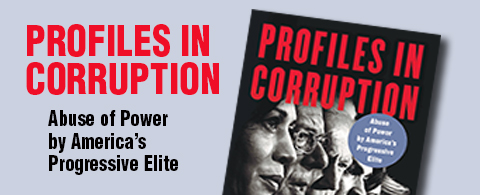
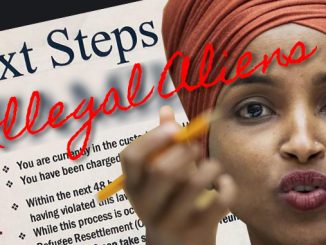
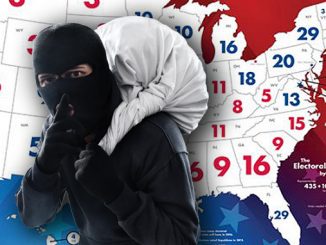
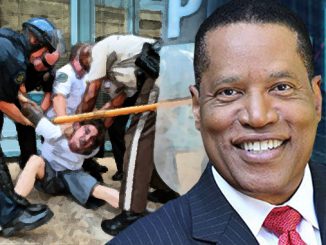
I wonder how many business owners in L.A. / Minneapolis support defunding the Police? I wonder how many families will decide to relocate as a result? I wonder how much support this “idea” actually has ? (something tells me that it ain’t much).